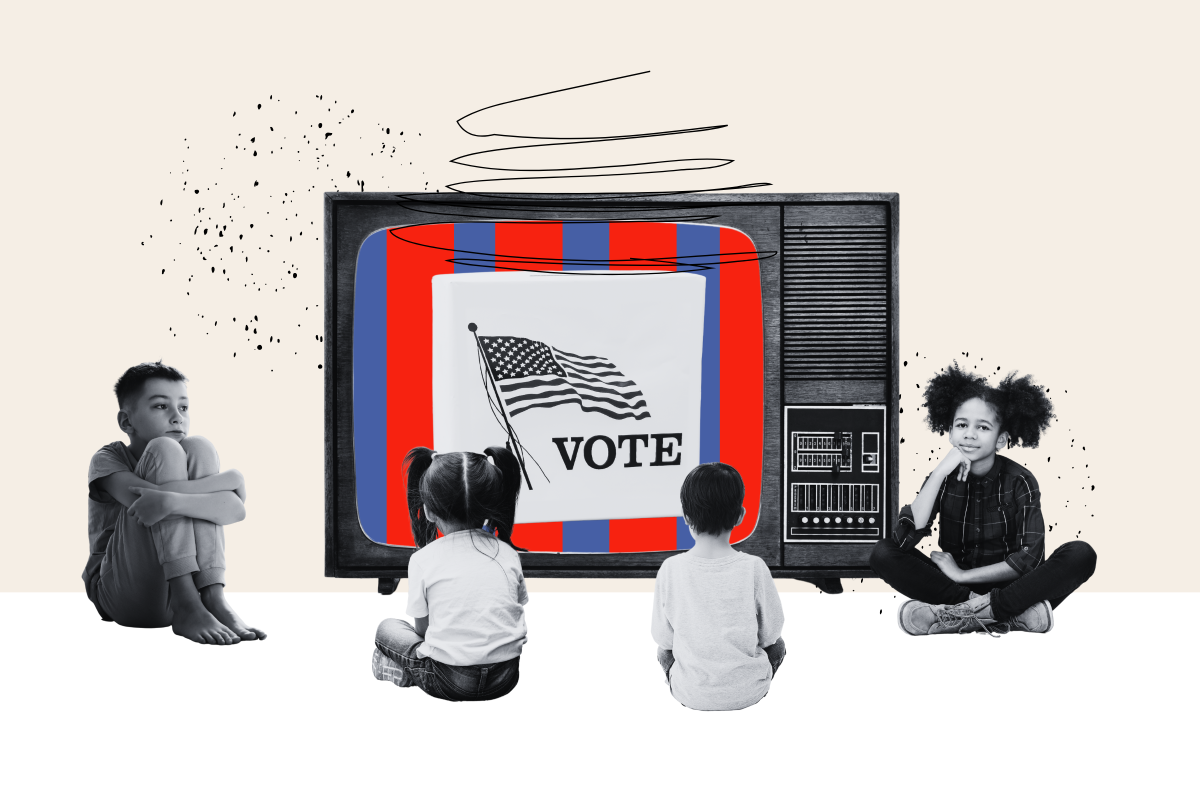After one school announced this week that students who feel too distressed by the presidential election results will be allowed to skip classes, two political experts have shared tips for talking to kids about election-related stress.
Donald Trump has won the 2024 presidential election and will be getting ready to move back into the White House as the 47th president. Emotions have run high in the two polarized campaigns and many people of all ages are having to deal with disappointment and anxiety about what the future holds.
As well as letting overly stressed-out pupils skip class on Wednesday, the Ethical Culture Fieldston School, a private institution in New York City, also avoided assigning homework on election day, providing counseling, and offering reading materials to help kids discuss election-related worries.
The school's decision seems to reflect youth concerns. Google Trends data showed a 208% surge in searches for "U.S. election stress and sleep" over the past week, while TikTok, which generally attracts younger users, has 21.8 million posts on "anxiety about the election," highlighting how political uncertainty can affect emotional well-being.
Newsweek spoke to two experts about how parents can handle conversations with their children about political distress at home.

Susan McWilliams Barndt, a politics professor at Pomona College, in Claremont, California, explained that children know elections are important, but they often don't understand the full context.
"Today, when political rhetoric is so extreme, children might really worry that World War III is around the corner," she told Newsweek.
McWilliams Barndt said that kids are also highly perceptive of adult emotions: "If they see adults—especially the adults who keep them safe—panicking, they can spiral."
Parents should be on the lookout for signs of political anxiety, she said. This could manifest in nightmares or a child having trouble sleeping.
Robin Andersen, LMFT and past president of the California Association of Marriage and Family Therapists' (CAMFT) board of directors, told Newsweek that tweens and teens, especially, may engage in doom-scrolling on social media platforms while searching for election updates.
"Withdrawal from regular activities or expressing feelings of hopelessness about the future are warning signs to be especially mindful of. Children might ask repetitive questions about family safety, which can signal election-related anxiety and indicate they are seeking reassurance," she said.
"The best [way to] tell that your child is worried about politics is that they ask you to turn off the news or stop scrolling newsfeeds," McWilliams Barndt, who is also a mom, told Newsweek.
Tailoring conversations around election results distress to a child's developmental stage can work in parents' favor, she said.
Kids in elementary school needs a focus on reassurance, McWilliams Barndt said. "Especially when the world feels uncertain, children need to be certain that they are cared for and loved."
Breathing exercises can be a useful tool for elementary school children too, Andersen said.
"The 5-4-3-2-1 technique encourages children to identify five things they can see, four things they can touch, three things they can hear, two things they can smell, and one thing that can taste when feeling overwhelmed," she explained.
'No Reason for Panic'
McWilliams Barndt advised offering perspective to children in middle school, explaining to them that there is a difference between a campaign and a government.
"Not everything a candidate promises will happen, so while it might be right to worry, there is no reason for panic," McWilliams Barndt said, adding that it was important to maintain normal routines for middle-schoolers.
Andersen echoed this and told Newsweek that middle schoolers can benefit from more detailed discussions about democratic processes and how change happens gradually, while being reminded of the checks and balances in the system.
Parents can guide them on how to stay informed and help them identify one to two trusted news sources and set specific times to check updates together.
For older kids, action can be empowering, as they're old enough to be proactive and join a local organization that supports the causes they're passionate about. "That way, they can put their negative feelings to positive action," McWilliams Barndt said.
She said it was important for parents to manage their own reactions constructively, as everyone has the right to cry or yell when the world makes them angry or sad.
Parents can own their emotions, rather than the other way around. McWilliams Barndt advised saying something like: "I'm angry about the outcome of this election, so I'm going to yell at the TV for a bit, but I won't be angry and yelling forever."
Andersen explained that finding a balance between staying informed with the election results and the need to protect mental health is key. Parents could create a personal boundary around the amount of time spent reading and listening to election news.
"Show children how to focus on actionable responses rather than despair by saying things like, 'While I'm disappointed, I'm going to focus on ways we can still make a difference in our community,'" she said.
"Seeing trusted adults handle disappointment constructively helps build resilience and self-confidence around how to approach other challenging moments in the future."
Ultimately, McWilliams Barndt said that people don't always get the outcome they hoped for. "Part of being a human being is learning to face disappointment, to accept loss, and then to get up in the morning and keep trying for the world you want to live in," she said.
Update 11/06/24 at 8 a.m. ET; This article was updated with new information and comment throughout.
About the writer
Daniella Gray is a Newsweek Family & Parenting Reporter based in London, U.K. Her focus is on family dynamics, childhood ... Read more



